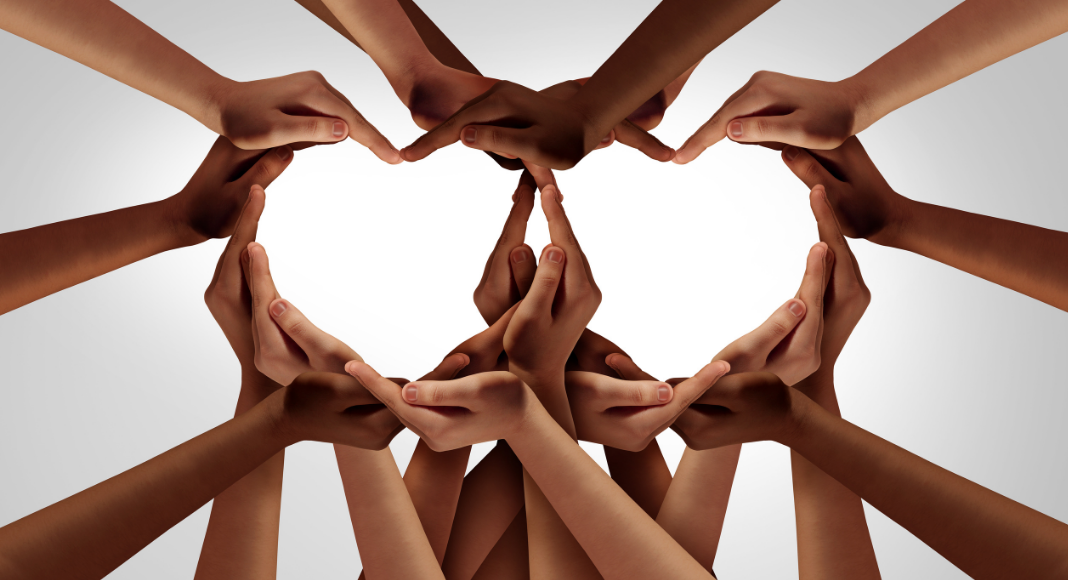 Every February, our nation celebrates Black History Month. This commemoration usually focuses on recognizing and celebrating the amazing and important contribution that Black Americans have made to our nation and the world. Some amazing highlights include Thomas L. Jennings’ invention of a process for dry-cleaning clothes and Alice H. Parker’s furnace design that allows for the use of natural gas for heating our homes. We wouldn’t be able to eat berries year-round without Frederick McKinley Jones who invented the refrigeration equipment to enable long-haul trucks to move these foods without spoiling. And traffic as we know it wouldn’t be the same without Garrett Morgan, who invented the three-light traffic light.
Every February, our nation celebrates Black History Month. This commemoration usually focuses on recognizing and celebrating the amazing and important contribution that Black Americans have made to our nation and the world. Some amazing highlights include Thomas L. Jennings’ invention of a process for dry-cleaning clothes and Alice H. Parker’s furnace design that allows for the use of natural gas for heating our homes. We wouldn’t be able to eat berries year-round without Frederick McKinley Jones who invented the refrigeration equipment to enable long-haul trucks to move these foods without spoiling. And traffic as we know it wouldn’t be the same without Garrett Morgan, who invented the three-light traffic light.
This emphasis on the past doesn’t always translate to thinking about the present. There are still amazing contributions happening every day by Black Americans.
Like Kizzmekia Corbett, Ph.D. who is one of the developers of the COVID-19 vaccine. And you (or your parents) might be able to see more clearly thanks to Dr. Patricia Bath, who invented a laser cataract treatment. If you want to explore more ways that Black Americans’ contributions have improved our daily lives, check out this video, or read more here.
The thing is, while remembering and recognizing accomplishments of the past or present might help us if we are on Jeopardy, it has little impact on our daily lives. Events of the last few years have drawn attention to various challenges that Black Americans face every day. It is important that we take the time to educate ourselves on these problems that still exist and how we can help.
As part of reckoning with how the past shapes the present, there have been analyses that show how segregation and redlining have driven disparities in wealth across our state and in Fairfield County. And while it might seem like another historical topic that doesn’t impact us today, it is important to note that these practices of discriminating on who can get a mortgage have long-term effects on household wealth and educational opportunity across generations.
It is also important to reflect upon the research that shows the differential policing that Black and White Americans experience every day. When over 100 Million traffic stops were analyzed, it became clear that there are significant racial disparities in policing. We can also examine research that shows that Black people are three times more likely than white people to be killed in a police encounter.
And disparities in the experiences of Black Americans are happening everywhere. In hospital settings, Black women being three times more likely to die during childbirth than White women. They are also more likely to catch and die from COVID-19, and they are also experiencing disparities in their mental health. When you add this all together, you can start to imagine how the collective weight prompts some Americans to protest this inequality.
But not every person is up for protesting – maybe it is too scary, or you don’t feel like it is the best way for you to help. And that is okay because there are so many ways that you can help at this moment. This great article from Bustle gives some tips, and I will echo a few of them.
First and foremost, listen to and believe Black People when they tell you something is wrong/unfair/inappropriate. Validating others’ experiences is part of building friendships every day, so don’t forget that you can validate someone else without having any comparable experience. And really, when someone is taking the time to share their trauma, we know we shouldn’t make it about ourselves, so don’t do that in this context either. Just be there, believe them (even, and perhaps especially, if it seems surprising or unlike anything you have experienced before).
Second, accept the idea that you have unconscious biases. We all have biases of all different kinds based upon a million things like how much a person weighs, a person’s political preferences, and even on a person’s race. And having implicit biases is normal and doesn’t make you a bad person. Knowing your own biases won’t solve all the problems discussed above, but taking the Implicit Association Test is one step you can take toward greater self-awareness. And if you know your own biases, you could perhaps try to remember them when making decisions and interacting with others.
If you are looking for other ways to educate yourself, pick up a book – good options include White Fragility, How to be an Antiracist, or So You Want to Talk About Race. These titles have study guides that get you many of the major points, but without the carefully crafted prose, or can be listened to as audiobooks in the car, walking around the house, or at the gym. For a more scholarly (and to some more accessible) read, check out Privilege, Power and Difference, which is a very readable sociology text that can help people learn about the concept of privilege in a way that isn’t quite as challenging as the above texts because it seeks to explain without casting blame (and therefore a feeling of defensiveness). And there are a ton of other great resources for your educational journey compiled by Brené Brown, including podcasts, books, and you name it (on both this topic, parenting, and more).
For those that don’t have the bandwidth to prioritize reading, perhaps you can work on supporting Black Businesses (good lists from Oprah and Good Housekeeping) – I have to say that the Ginger Snap and Carrot Cake Cookies from Partake Foods (which are gluten-free, vegan and free of the top 8 allergens) are some of my favorite go-to treats right now. Your dollars can make a difference, whether purchasing a fun bottle of Riesling or getting your kids some ethnically diverse dolls (or one of the other ways you can Diversify Your Toy Box).
Whatever way you pick to commemorate Black History Month, please start by being okay with the discomfort and not knowing. We all have to start somewhere on our journey to be better advocates and allies. And while you are at it, share your findings with your kids. Many of us were taught to be racially colorblind, but research has shown that if people don’t look at, acknowledge, and talk about race, we can’t recognize problems and help fix them.
And don’t worry that it is too early to talk about these things with your kids. Research shows that they recognize race before they can even talk and often before parents feel ready for these conversations.
Let’s make 2021 the year we commemorate Black History Month, with a little less trivia and a little more introspection. Because if we all work together, we can start breaking the patterns causing so many problems.

























